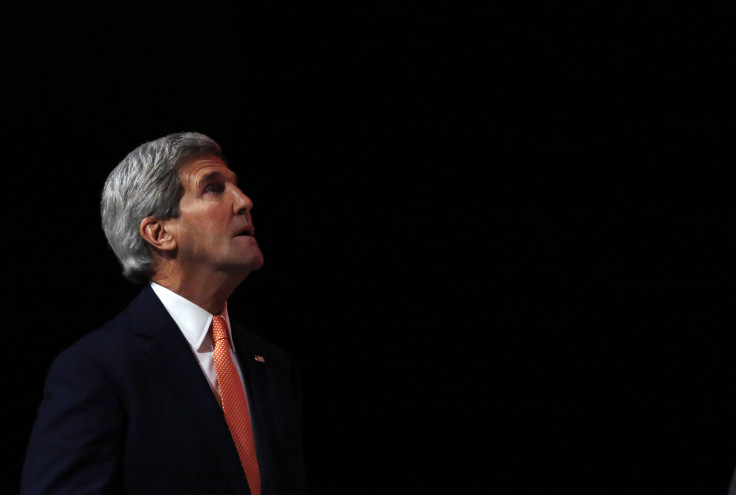US And Iran May Cooperate In Effort To Quell Iraq Crisis

As the Obama administration mulls how to respond to the growing crisis in Iraq, a potential opening for collaboration has appeared with an unlikely partner: Iran.
Washington has not had diplomatic relations with Tehran since 1979. But the rapid advancement of the Islamic State of Iraq and Syria (ISIS), a radical Sunni group that now controls a significant swathe of territory in Iraq, has given the United States and Iran a shared objective to uphold the beleaguered regime of Nouri al-Maliki in Baghdad.
Secretary of State John Kerry, in an interview with Yahoo’s Katie Couric, hinted that the U.S. would be open to talks with the Islamic Republic in order to resolve the crisis.
"I think we are open to any constructive process here that could minimize the violence, hold Iraq together -- the integrity of the country -- and eliminate the presence of outside terrorist forces that are ripping it apart," Kerry said.
In the 35 years since diplomatic ties between Iran and the United States ended, the closest collaboration between the two countries occurred in the aftermath of the September 11, 2001 attacks, when Tehran shared intelligence on al Qaeda and Osama bin Laden. In the ensuing years, however, the Bush and Obama administrations clashed with successive Iranian governments over nuclear energy. The United States and Europe have imposed crippling economic sanctions to compel Iran to abandon its nuclear program, which Tehran insists is for civilian purposes only.
On Wednesday, Deputy Secretary of State William J. Burns is scheduled to meet in Vienna with his Iranian counterparts to discuss the nuclear issue. A senior administration official quoted by the New York Times said that discussion of the Iraq crisis may occur on the margins.
Despite the urgent opportunity presented by the Iraq crisis, U.S. public opinion remains divided on whether to engage with Iran. Advocates of a thaw in ties believe that a shared strategic interest may encourage progress in other aspects of the bilateral relationship. Iran's President Hassan Rouhani has been warmer to America than his predecessors. Opponents of rapprochement, however, believe that the U.S. should resist granting concessions to Iran at a moment when Tehran appears to have leverage.
Kerry carefully avoided saying that the two countries would act jointly, militarily. "Let’s see what Iran might or might not be willing to do before we start making any pronouncements," he told Yahoo.
Washington’s first priority, it seems, is to limit its involvement. In his interview with Couric, Secretary Kerry echoed President Obama’s remarks, given Friday in a speech in Washington, that the United States would not play a leading role in resolving the conflict in Iraq.
“It’s up to the Iraqi people,” Kerry said. “I don’t think the United States should be issuing instructions or orders. I don’t think any country should.”
© Copyright IBTimes 2024. All rights reserved.












